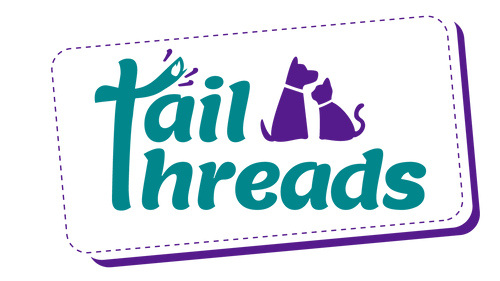The Shiba Inu is a small and ancient Japanese breed that has become increasingly popular in recent years. Known for their cute looks, playful personalities, and fiercely independent nature, Shiba Inus make for great pets for the right owners. This breed can be quite challenging to train and requires a lot of socialization, but for those who are up to the task, they can be incredibly rewarding companions. In this article, we will provide a comprehensive guide to the Shiba Inu, covering everything from their appearance and personality to their health and grooming needs.
Shiba Inu Breed Characteristics
- Origin: Japan
- Size: Small
- Weight: 17-23 pounds
- Lifespan: 12-16 years
- Breed Group: Non-Sporting
- Activity Level: Moderate
- Barking Level: Moderate
- Attitude to Other Dogs: Can be aggressive
- Attitude to Cats: Can be aggressive
- Attitude to Kids: Can be good with proper socialization
The Adorable Look of Shiba Inu: Dog’s appearance
The Shiba Inu is a small, compact dog with a thick coat that comes in a variety of colors, including red, black, and tan, and sesame. They have a broad head with a pointed muzzle, small triangular ears, and dark, almond-shaped eyes. Their tails are curled over their backs, and their legs are straight and muscular.
Shiba Inu’s Character
Shiba Inus are known for their strong-willed, independent personalities. They can be aloof with strangers and are often described as cat-like in their behavior. However, they are also very loyal and affectionate with their owners. They can be stubborn and challenging to train, but with consistency and patience, they can learn to follow commands.
Paws and Effect: How Shiba Inu's Habits Affect Their Health and Well-Being
Shiba Inus are active dogs that require regular exercise and mental stimulation. They enjoy playing and exploring, but they can also be quite content to lounge around the house. They are also known for their cleanliness and will groom themselves like cats. Shiba Inus can be prone to separation anxiety, so it's important to give them plenty of attention and socialization
Expert Tips for Shiba Inu Training and Nutrition
Feeding a Shiba Inu a well-balanced diet is essential for their overall health and well-being. High-quality dog food that is specifically formulated for small to medium-sized breeds is recommended. It’s important to measure the food carefully to avoid overfeeding and maintain a healthy weight. Shiba Inus have a tendency to gain weight easily, so portion control is key. Avoid feeding your Shiba Inu table scraps, as it can lead to obesity and other health problems.
When it comes to treats, choose ones that are low in calories and made with natural ingredients. Some good options include fresh fruits and vegetables like carrots, green beans, and blueberries. Commercial dog treats made with real meat or fish are also a great option.
Understanding Shiba Inu’s Health: Common Issues and Solutions
Routine healthcare for your Shiba Inu includes regular visits to the vet, vaccinations, and preventative care such as flea and tick prevention. It’s important to keep up with regular grooming, including bathing, brushing teeth, and cleaning ears. Shiba Inus have a tendency to develop dental issues, so daily teeth brushing is recommended.
It’s also important to keep your Shiba Inu’s nails trimmed to avoid overgrowth and discomfort. Check your dog’s nails regularly and trim them when needed. Some common health issues that Shiba Inus may develop include hip dysplasia, allergies, and eye problems. Regular visits to the vet can help detect and manage these issues.
Unleashing Your Inner Stylist with Your Dog: Shiba Inu Grooming
Shiba Inus have a double coat that sheds seasonally. Regular brushing can help manage to shed and keep their coat healthy and shiny. Use a soft bristle brush or undercoat rake to remove loose fur and prevent matting. Bathing your Shiba Inu every three months or as needed is recommended.
The Advantages of Shiba Inu
Shiba Inus are known for their loyalty and affectionate nature towards their owners. They are a great fit for apartment living due to their small size and moderate exercise needs. They are also highly intelligent and trainable, making them great companions for those who enjoy teaching their dogs new tricks. Shiba Inus are also generally healthy and have a long lifespan, with an average of 12 to 15 years.
The Disadvantages of Shiba Inu
Shiba Inus are not recommended for households with young children or other pets. They have a high prey drive and can be aggressive towards other dogs and small animals. They are also known for their stubbornness and can be difficult to train without proper socialization and consistent positive reinforcement.
Some facts about Shiba Inu
- Shiba Inus are one of six native Japanese dog breeds.
- The breed was originally used for hunting small game, such as birds and rabbits.
- The Shiba Inu was nearly extinct after World War II, but a small number of dogs were used to rebuild the breed.
- The breed gained popularity in the United States after a Shiba Inu named Kabosu became an internet sensation.
In conclusion, Shiba Inus are a great choice for those looking for a loyal and affectionate companion. They require proper training and socialization, but their intelligence and trainability make them a great fit for those willing to put in the effort. With proper healthcare, grooming, and nutrition, Shiba Inus can live long and healthy lives. Consider adopting a Shiba Inu if you’re looking for a loving and devoted companion.

